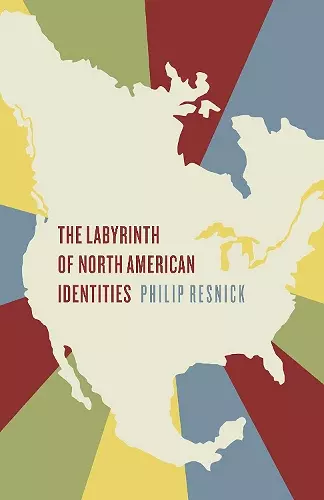The Labyrinth of North American Identities
Format:Paperback
Publisher:University of Toronto Press
Published:25th Apr '12
Currently unavailable, and unfortunately no date known when it will be back

While some focus on the differences among Canada, Mexico, and the United States, Philip Resnick has written a compelling book describing their shared traits and continental space. North America, in his view, is not a civilization; rather it is a "labyrinth of identities," with a formidable future that is more likely to be defined by artists and ecologists than by trade negotiators. If you want to gaze into our continental future, read this book. -- Robert A. Pastor, author, The North American Idea: A Vision of a Continental Future, Professor and Director, Center for North American Studies, American University
What exactly does it mean to be North American? The Labyrinth of North American Identities is a long essay that attempts to learn more about North America as a unit and its individual countries by exploring the idea of a shared North American identity.
What exactly does it mean to be North American? Europeans have been engaged in a long-running debate about the meaning and nature of Europe. The Labyrinth of North American Identities generates a similar discussion in the context of North America: what do we learn about North America as a unit and its individual countries when we explore the idea of a shared North American identity? Combining cultural, anthropological, historical, political, economic, and religious considerations, Philip Resnick acknowledges the relative differences in power and influence of the United States and its North American neighbours but digs deeper to uncover shared characteristics that constitute a labyrinth of North American identities unrestricted by national boundaries.
To date, discussions of North America have largely revolved around the often technical implications of the North American Free Trade Agreement (NAFTA) or US homeland security. What has been lacking, by contrast, is a culturally-driven set of reflections. This book examines the legacy of indigenous cultures; the role of organized religion; pathways to independence; the role of imperial languages; manifest destiny; market capitalism and its limitations; democratic practices and failures; diverging uses of the state; new world utopias and dystopias; regional identities; and civilizational perspectives. What results is a vision of North America that defies any top-down attempt to impose a homogeneous "North Americanness."
Resnick has offered an insightful little work that will doubtless prompt much debate. There is much that unites—and entangles—these three countries, and in helping readers through the resulting labyrinth, Resnick is an able guide. -- American Review of Canadian Studies
ISBN: 9781442605527
Dimensions: 216mm x 140mm x 11mm
Weight: 240g
160 pages